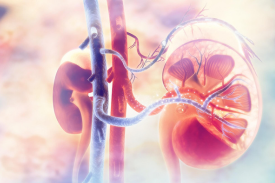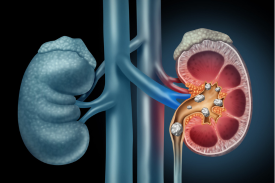Essential Post-Operative Care Tips for Laser Kidney Stone Treatment Recovery
Essential Post-Operative Care Tips for Laser Kidney Stone Treatment Recovery
Undergoing laser kidney stone treatment can be a transformative experience, offering relief from the discomfort and pain caused by kidney stones. However, proper post-operative care is essential to ensure a smooth recovery and minimize the risk of complications. In this guide, we’ll explore some crucial post-operative care tips for patients recovering from laser kidney stone treatment, with insights from leading urosurgeon, Dr. Rajesh Dhake, at Pune Institute of Nephro Urology (PINU), known as one of the best urology hospitals in Pune.
- Hydration is Key: After laser kidney stone treatment, it’s crucial to stay well-hydrated to help flush out any remaining stone fragments and prevent the formation of new stones. Aim to drink plenty of water throughout the day, as recommended by your doctor. Dr. Rajesh Dhake emphasizes the importance of hydration in preventing kidney stone recurrence and ensuring optimal kidney function.
- Follow Medication Instructions: Your doctor may prescribe medications to manage pain, prevent infection, or aid in stone passage. It’s essential to follow their instructions carefully regarding medication dosage and timing. If you have any concerns or experience adverse effects, don’t hesitate to contact Dr. Dhake or your healthcare provider for guidance.
- Monitor Urinary Symptoms: Pay close attention to your urinary symptoms following laser kidney stone treatment. While some discomfort and minor blood in the urine are normal during the initial recovery period, severe pain, persistent bleeding, or difficulty urinating may indicate complications. Contact your urologist, such as Dr. Rajesh Dhake, if you experience any concerning symptoms.
- Adopt a Kidney-Friendly Diet: Diet plays a crucial role in preventing kidney stone recurrence. Dr. Dhake recommends following a kidney-friendly diet that includes plenty of fruits, vegetables, whole grains, and lean proteins while limiting sodium, oxalate-rich foods (such as spinach and nuts), and excessive animal proteins. Your urologist can provide personalized dietary recommendations based on your specific medical history and stone composition.
- Practice Good Hygiene: To reduce the risk of infection, practice good hygiene habits, especially around the urinary tract. Maintain proper genital hygiene, wash your hands frequently, and avoid using irritating or scented products in the genital area. Dr. Rajesh Dhake emphasizes the importance of preventing urinary tract infections (UTIs) during the post-operative period to support optimal healing.
- Attend Follow-Up Appointments: Regular follow-up appointments with your urologist, such as Dr. Dhake at PINU in Pune, are essential for monitoring your recovery progress and addressing any concerns. Be sure to attend all scheduled appointments and communicate openly with your healthcare team about your symptoms, lifestyle habits, and any questions or worries you may have.
- Resume Physical Activity Gradually: While it’s essential to rest and allow your body to heal initially, gradually resume normal physical activities as advised by your doctor. Avoid strenuous activities or heavy lifting in the early days of recovery, but aim to incorporate light exercise, such as walking, into your routine to promote circulation and overall well-being.
Summary:
Recovering from laser kidney stone treatment requires careful attention to post-operative care to ensure a smooth and successful recovery. By following these essential tips, patients can support their healing process and minimize the risk of complications. Under the guidance of experienced urosurgeon Dr. Rajesh Dhake at Pune Institute Of Nephro Urology (PINU), known for its excellence in urological care, patients can receive personalized support and guidance tailored to their individual needs. From staying hydrated and monitoring urinary symptoms to adopting a kidney-friendly diet and attending follow-up appointments, each aspect of post-operative care plays a crucial role in promoting optimal recovery. By prioritizing self-care and maintaining open communication with their healthcare team, patients can navigate the post-operative period with confidence and achieve long-term kidney health and well-being.




